'We're all overcompensating': Why so many LGBTQ community members struggle with body dysmorphia
His torso wasn't flat enough. Her stomach, arm and thighs looked too big. The number on the scale still haunts him.
Botox and fillers and liposuction and steroids and abs on abs on abs stare back at us regularly on our TikTok screens, beckoning us subconsciously to question how we look – a reflection of a culture long shaped by body image ideals, now hammered home to a younger generation at all hours.
For many members of the LGBTQ community, concerns about body image range from general dissatisfaction to body dysmorphia to eating disorders on top of added stressors associated with queerness. Each story is different – many queer men strive for abs, queer women for thinness – but paints a cautionary tale about the dangers of comparison. The queer community today faces unique societal pressure to look a certain way thanks to the ongoing influence of social media in the microcosm of LGBTQ spaces, both online and in real life.
Chris Henrie is in recovery from anorexia and body dysmorphia. "It's always there in the back of my head," he says, "telling me that I'm not good enough, or I don't look good enough or this part of my body is flawed."
What is body dysmorphia and body dysmorphic disorder?
It's a mental health condition, according to the Mayo Clinic, in which you harp on perceived flaws in your appearance (and not to be confused with gender dysphoria).
"The person who's affected experiences obsessive worries and engages in compulsive and repetitive behaviors," says Elizabet Altunkara, director of education at the National Eating Disorders Association. "And those behaviors are things like checking themselves in the mirror, trying to hide that body part that they're really concerned about."
While the terms are used interchangeably, body dysmorphia is technically a symptom of body dysmorphic disorder, but not the condition itself. It's also not an eating disorder even though they're related.
Remember, too, that "if you're suffering in any way, you don't have to (fit) neatly into an eating disorder diagnosis or you don't have to fit neatly in body dysmorphic disorder to get support for your mental health or for your physical health," says Samantha DeCaro, director of clinical outreach and education at The Renfrew Center.
'Forever chasing your tail'
Daniel O'Shaughnessy is a London-based nutritionist, now in his late 30s. But his profession didn't always line up with how well he was taking care of himself.
Discomfort with his body started in his all-boys elementary school, where he was overweight and began to experience puberty and his budding queerness.
Fast-forward to the London gay scene where O'Shaughnessy's body dysmorphia followed him like a shadow. Anorexia and elements of binge eating, too. He punished himself if he didn't go to the gym; if he missed a session, no birthday cake.
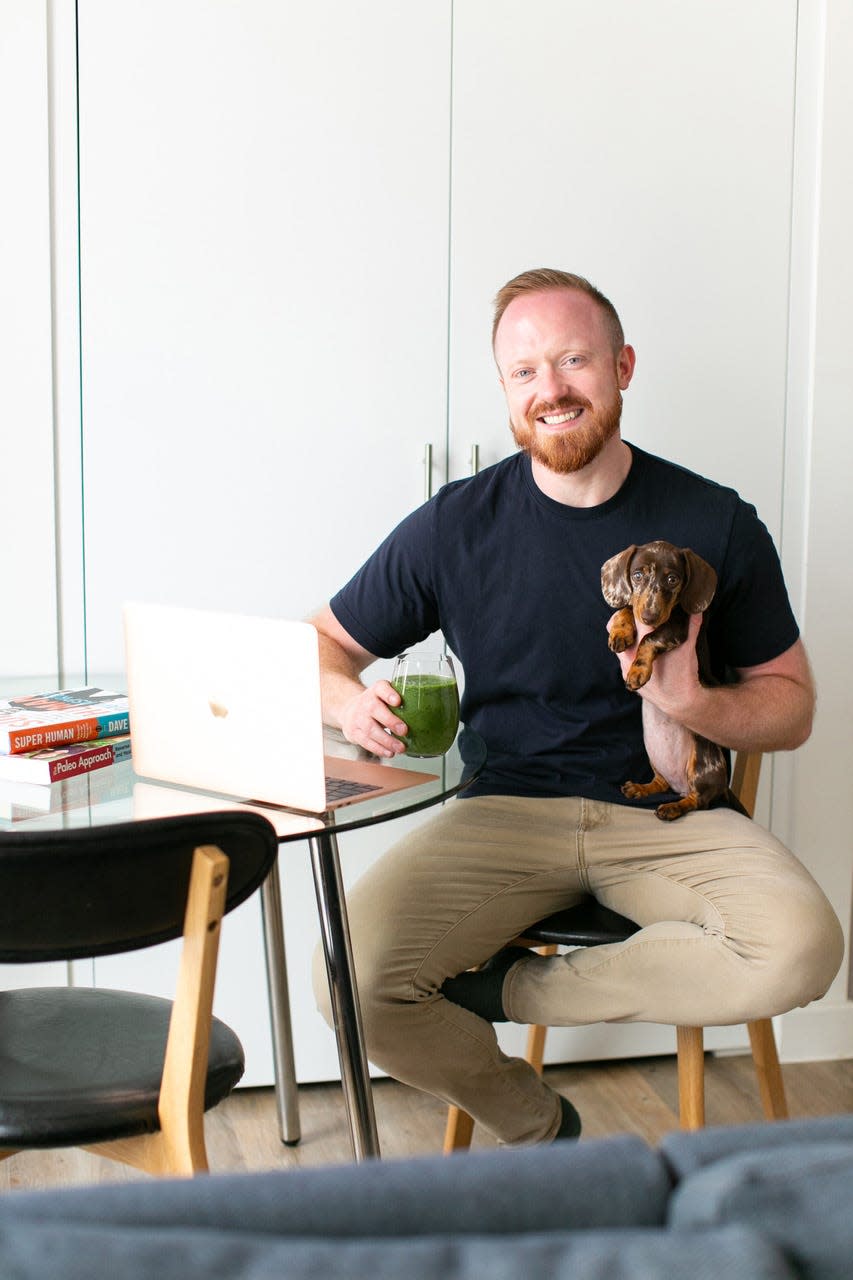
"I just remember thinking, I have to constantly better myself, I never thought I can just be and exist and live my life," he says.
These feelings are universal among queer men, to varying degrees. "A lot of people think that the ideal body type is definitely either the muscular guy with the 'V' shape, or your skinny twink kind of vibe," says Jarrod D. King, 36, who hosts a gay culture podcast.
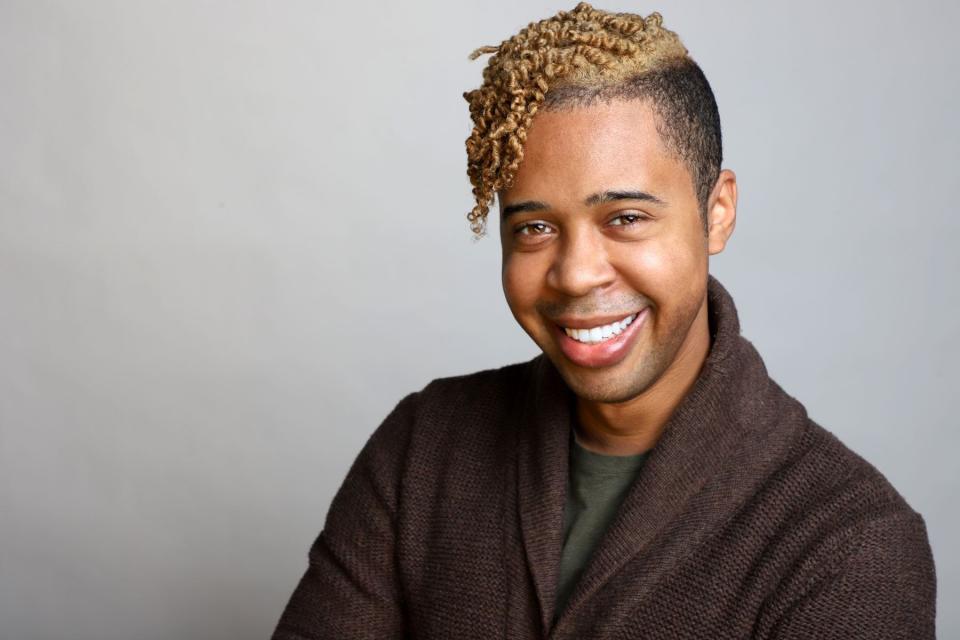
O'Shaughnessy began taking steroids to bulk up and meet a supposed gay ideal. "Having big muscles is what you need to have in order to fit in, or what you think you need to have to fit in," he says. "So it's become this forever chasing your tail." O'Shaughnessy thought he was invincible – until the muscles in his shins were so tight he couldn't walk, and a full night's sleep meant waking up at 2 a.m. His blood pressure rose as his good cholesterol tanked. All for seven to 10 pounds of extra muscle.
And no one in his life knew what was going on. "They just thought I was really into my health, and no one really thought I was suffering," he says. "On the outside, I was treading water. Like a swan, I was completely fine, trying to further my life, studying nutrition. No one really asked how I was."
Eventually, through various types of therapy he found recovery. But he knows so many others are still struggling just like he was.
'We're all overcompensating'
Andrew Sciallo, 26, has a bone to pick with the gay community. He struggles with the photo-heavy, body-focused vibes of the online dating scene for gay men.
While Sciallo has never had an official diagnosis of body dysmorphia or an eating disorder, "I would be lying if I said that I didn't still obsess over the number on the scale," he says.
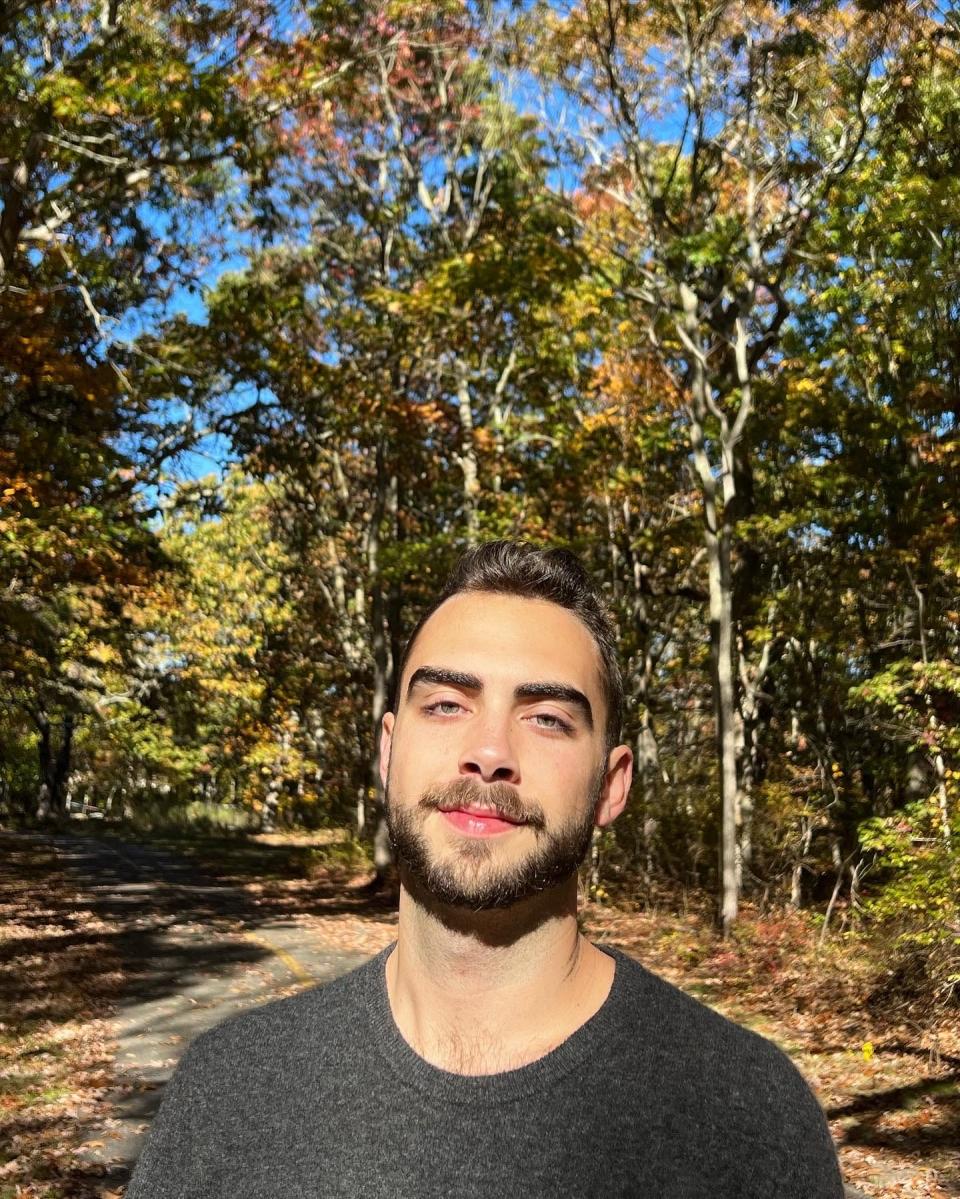
He thinks the gay community is due for a reckoning about appearances. "We're all overcompensating for not being able to fit in to that culture that originally rejected us," he says. Spending time at the gym isn't inherently wrong, but "we're extremely judgmental of each other's physical appearance." How many likes did that thirst trap get? How many ab-tastic friends adorn your Instagram grid?
But don't always judge a book by its cover, King says. "I don't think it's necessarily fair to always jump down somebody's throat just because they look a certain way. And I think that goes for whether they're traditionally good looking or not."
'It's really all I've known'
Ten years ago, Chris Henrie was hospitalized for anorexia and diagnosed with body dysmorphic disorder. Now 25, he's a full-time content creator on Instagram and TikTok and has traveled to more than a dozen countries. But he doesn't really know life without his struggles.
"It's hard to even really think about the ways that it has complicated my life and affected me because it's really all I've known for such a long time," the Paramus, New Jersey, resident says.

He was always tall and slender for his age. Family members would comment at holiday dinners. What was he eating? How did he look? His young teenage brain twisted it: Was something wrong?
This isn't uncommon. A recent Trevor Project study found that 87% of LGBTQ youth are not satisfied with their bodies.
Lexie Manion, who is bisexual, felt her body dysmorphia most painfully at ages 15 and 16.
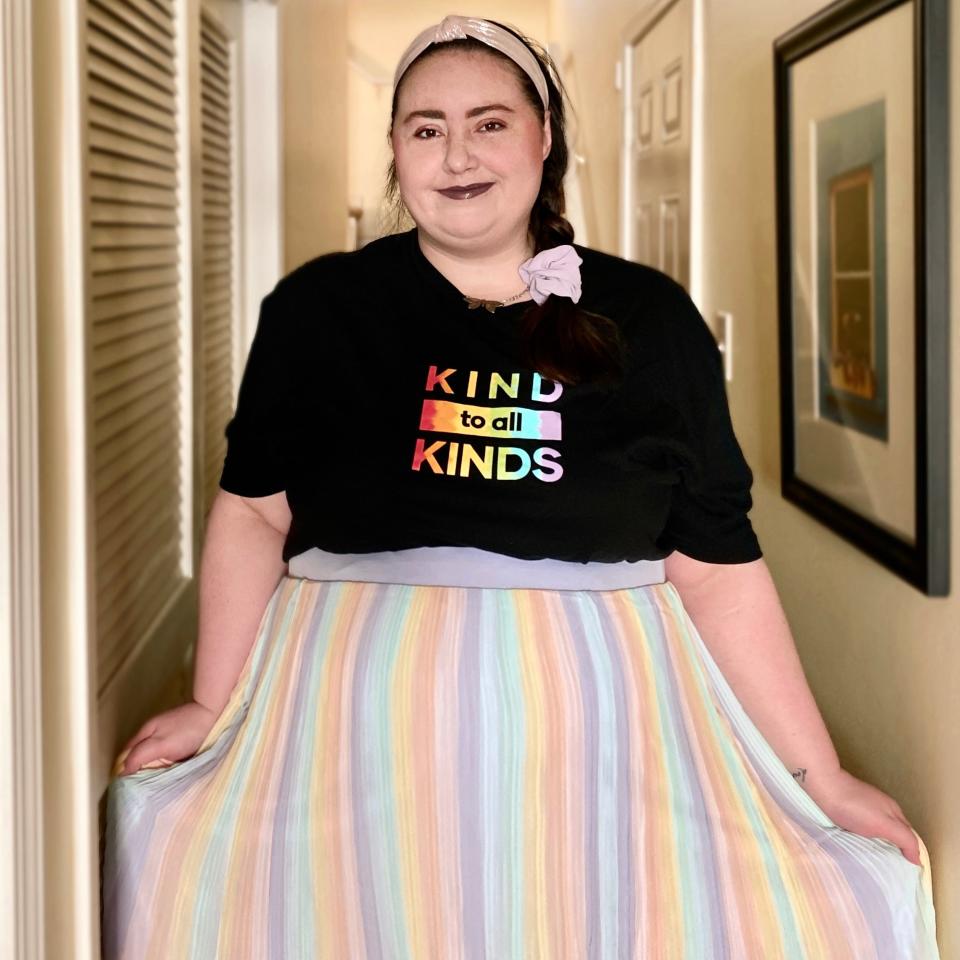
"I felt I was much bigger than I was, as it hadn’t fully registered visually or mentally that I lost weight," the 28-year-old student says. Classmates bullied her in middle school for being overweight. A few years later, she developed an eating disorder.
As Henrie discovered his pansexuality and wondered about his place in the LGBTQ community, his illness only intensified. "It was hard for me to fit in with any of those groups, because I didn't have all these muscles or I wasn't a certain weight," he says.
It still affects him today; he has a boyfriend and finds it strange to hear compliments about his body. He knows all the negativity is in his head. But nothing is simple. "For so long, my brain has told me the complete opposite of what people now tell me," he says.
But he's growing anyway: "I try to challenge myself to be a little more open, to try new clothing or being in a photo instead of taking a photo whenever I'm in a group or just like small things like that are really significant."
'I really repressed who I was'
Sometimes it's not the muscles that are daunting. It's the coming out as queer in the first place – so much so that an illness could surface as a coping mechanism.
Take Ethan Feinstein.
"When I was struggling, I didn't necessarily like looking in the mirror," the 34-year-old Brooklyn, New York, resident says. "I was upset with my torso. It wasn't flat enough in my opinion. I was not happy with my face. I thought it wasn't sharp enough."
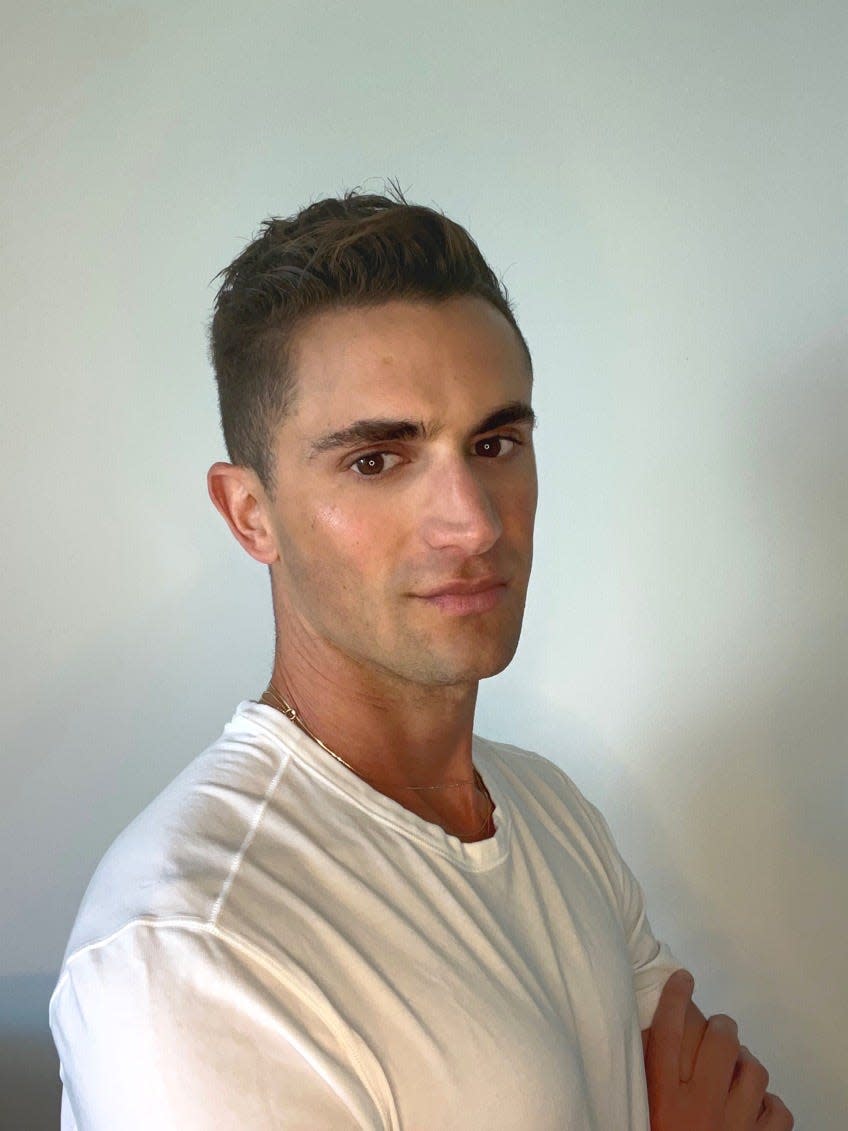
Looking in the mirror is less daunting today for Feinstein, now recovering from anorexia and body dysmorphia. His gay identity didn't lead to his eating disorder – it was a coping mechanism.
"I really repressed who I was for so many years, and I had my eating disorder as a crutch," he says.
Now he works in the beauty industry and specifically with influencer marketing, as well as partners with organizations like NEDA and Project HEAL to help those like him.
"We've been raised in a culture where having a lack of masculinity could be a sign of weakness," he says. "And that's also related to food."
'Heightened discrimination and mockery'
The body issues some in the LGBTQ community face can be exacerbated by not finding the right care when they reach out for help.
Ayanna Bates has experienced body dissatisfaction since she was 17 years old. It took her years to get properly treated, she says, in part due to a lack of medical providers who she can relate to.
"That is harmful in itself, not seeing people reflected in you as you're trying to access that care, or them not even having the awareness or their cultural humility to be able to adequately to meet folks where they're at," she says.
Melvin Williams, associate professor of communication and media studies at Pace University, explains, "LGBTQ+ people of color face heightened discrimination and mockery – even among fellow LGBTQ+ members – when they do not meet established body image and fashion standards online and in social settings."
But Bates has a message for those in need: "You deserve access to care, that your body is yours and that you have the right to exist how you are."
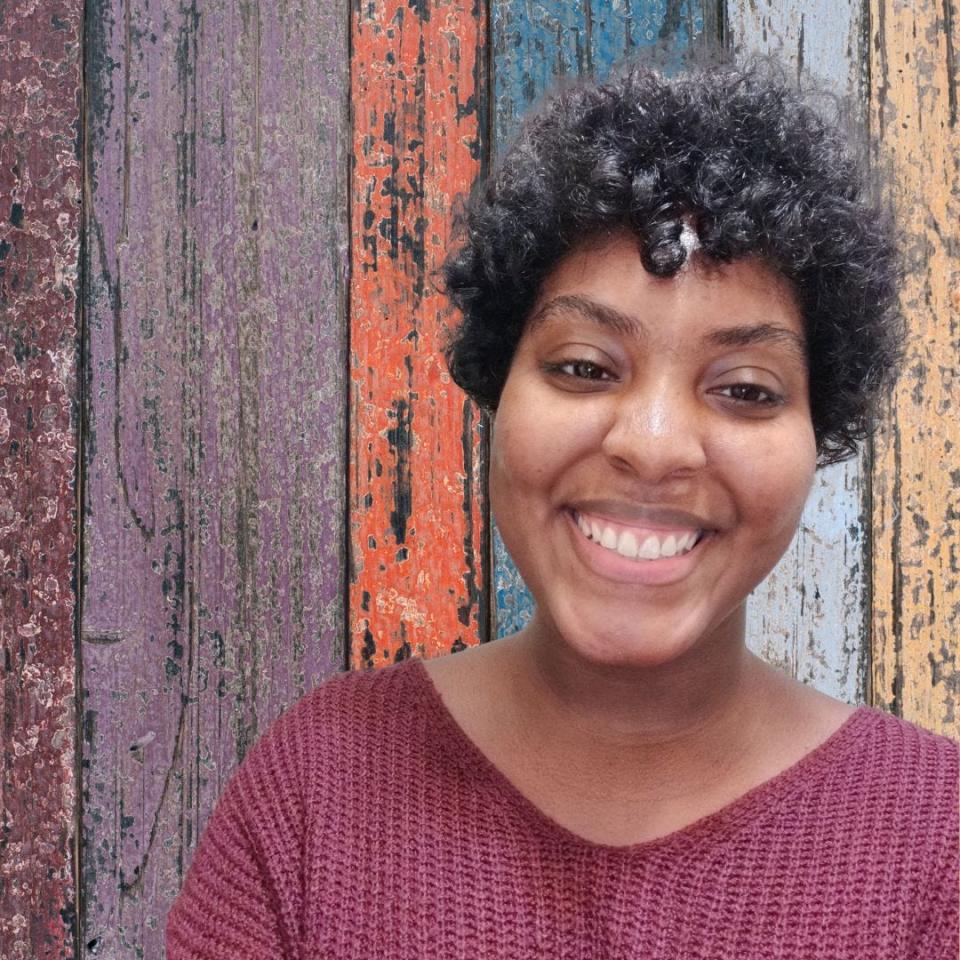
No matter where someone falls on the LGBTQ spectrum, prejudices and problems exist. The future will require community members to look inward – away from their phones and the expectations baked inside dating and social media apps – and remember that what makes them unique isn't how they look on the outside.
As King says: "At the end of the day, we have to just be kinder to each other."
If you or someone you know is struggling with body image or eating concerns, the National Eating Disorders Association's toll-free and confidential helpline is available by phone or text at 1-800-931-2237 or by click-to-chat message at nationaleatingdisorders.org/helpline. For 24/7 crisis situations, text "NEDA" to 741-741.
More on body image, body dysmorphia, eating disorders
Celebrities face it too: Megan Fox opens up about body dysmorphia in Sports Illustrated Swimsuit cover
For many years: Jane Fonda opens up her experience with body dysmorphia in her younger years
Important: The Kardashians, body image and social media: Why parents should stop filtering their photos
Men and eating disorders: Ed Sheeran, Elton John and the power of male celebrities speaking out about eating disorders
This article originally appeared on USA TODAY: The LGBTQ community, body dysmorphia, eating disorders: What to know
